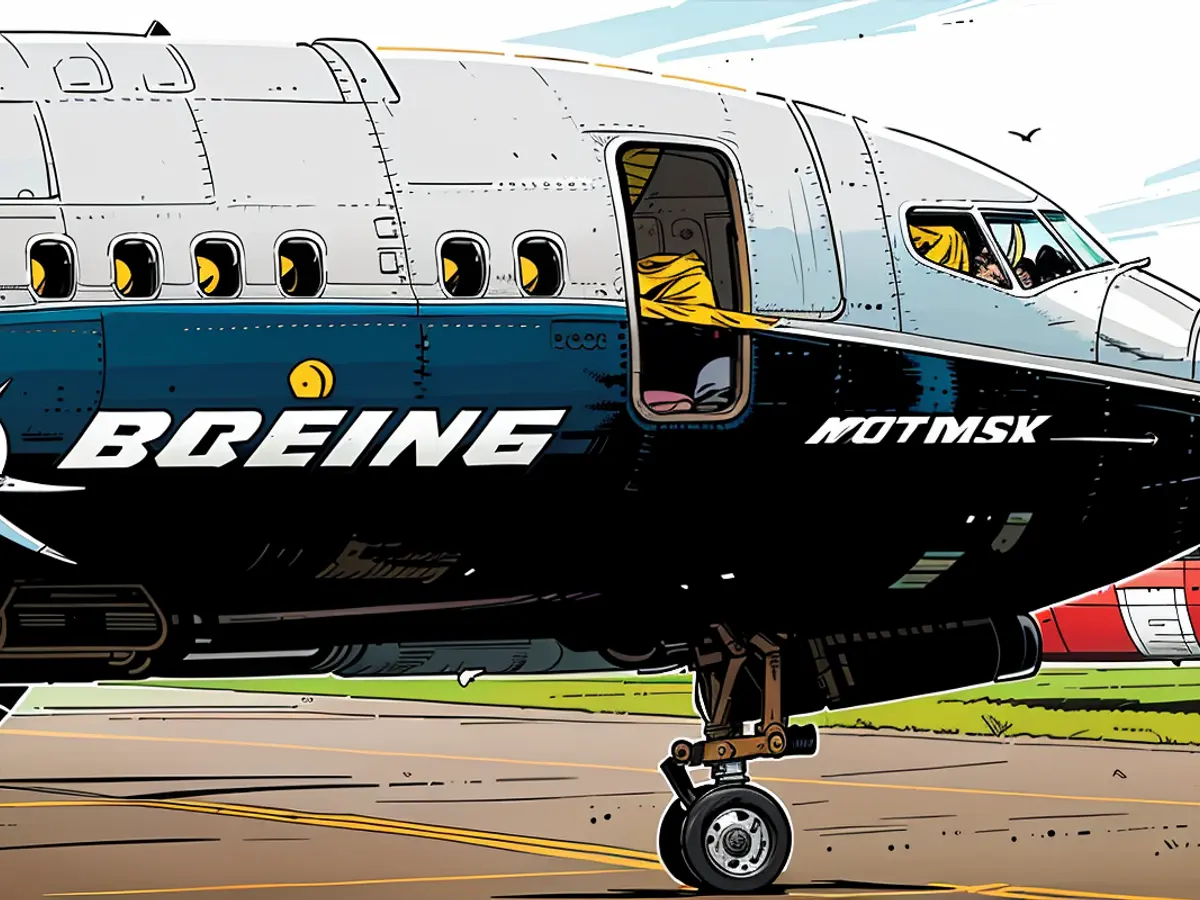Are travelers still safe on a Boeing aircraft?
Airplanes are High-Tech machines. Even the smallest material errors can be life-threatening. Boeing has bitter experience with that, but the incidents keep piling up. What conclusions should travelers draw? ntv.de asks aviation expert Gerald Wissel.
It's a fatal tally that aircraft manufacturer Boeing is delivering this year: In January, a large piece of debris flew out of a cabin wall during an Alaska Airlines flight. In May, there were four crash landings. At the beginning of the week, a plane lost a wheel - it's the second one Boeing has lost within a few months. And now there's a suspicion about oxygen masks. Passengers might not be able to survive with them in an emergency, it's reported. The US Federal Aviation Administration (FAA) has ordered inspections on more than 2600 Boeing-737 planes. At least no machine had to make an emergency landing, and the passengers remained unharmed.
What's going on at Boeing? Why won't the crisis abate? Is the company still negligent in construction, production, and testing of its planes? Should travelers cancel or change their flights? Boeing had only recently admitted responsibility for the crashes of two 737 Max planes in Indonesia and Ethiopia in 2018 and 2019. Within five months, 346 people died. Passengers are growing increasingly concerned.
Aviation expert Gerald Wissel understands the anxiety of air travelers but reassures them. One must differentiate, he says, "between 'construction and manufacturing problems' and 'maintenance problems'." The problem with the oxygen masks was discovered during a routine inspection. Both older and newer versions of the Boeing 737 are affected. It's still unclear whether it's a construction, production, or maintenance error. The FAA can't yet assess how many planes are affected and how many require repairs. It's normal for problems to be discovered during maintenance that affect all planes of the same type and must be fixed on all of them, Wissel explains. Travelers should therefore not yet worry. The aviation authority is demanding the problem be rectified within 120 to 130 days. "There's no reason not to feel safe. If it were a critical situation, the authorities would have imposed a grounding."
As for the cause of the lost wheels, nothing can be said for certain yet. "Landing gear are subjected to heavy loads. If it's a construction or production error, all planes of the same type are affected." In this case, however, there's no reason to assume sloppy production based on the current situation. Nor is there reason to assume that the recent incidents indicate that the crisis at Boeing is continuing.
Critically important" and as a warning, an airfare expert notices the debris of a Boeing 707 Max wing that broke off in January. This incident showed that due to personnel shortages and time- and cost-pressures, "which are immense at Boeing," not always strict adherence to procedures was followed. A four-eyes principle and thorough inspections were apparently waived for economic reasons. The management culture at Boeing is to blame. "If management receives bonuses based on savings instead of quality, sloppiness ensues because time requirements must be met." Suppliers worked under similar pressure, thereby increasing potential error sources.
Therefore, Wissel considers it unnecessary to fly on a Boeing plane. What happened is not to be sugarcoated. "The management has built crap in the past. Boeing received the bill for their short-sighted thinking. The image is damaged for now." Having anxiety or complaining is inappropriate. "The planes are safe." Airlines that are now ordering planes from the two manufacturers will be looking more closely. "That means we have an additional safety inspection."
Wissel does not exclude the possibility that things will still happen out of the blue. Despite double and triple checks, electronics and computers "can suddenly go crazy." I can understand why someone would say, "I won't get on." I remain, however, convinced: All planes are equipped with double and triple backup systems. And the pilots of airlines are well-trained enough to compensate. Boeing must quickly restore trust that they can indeed build 100% safe planes.
In light of these ongoing issues, some travelers might question whether to fly with Airbus Group's competitors, given Boeing's struggles. Despite the concerns, aviation expert Gerald Wissel emphasizes that both Airbus and Boeing have stringent safety protocols in place.
Regarding the issue of lost wheels, while it's concerning, Wissel points out that aviation incidents often reveal weaknesses that can be addressed and rectified, ensuring safety for future flights.









